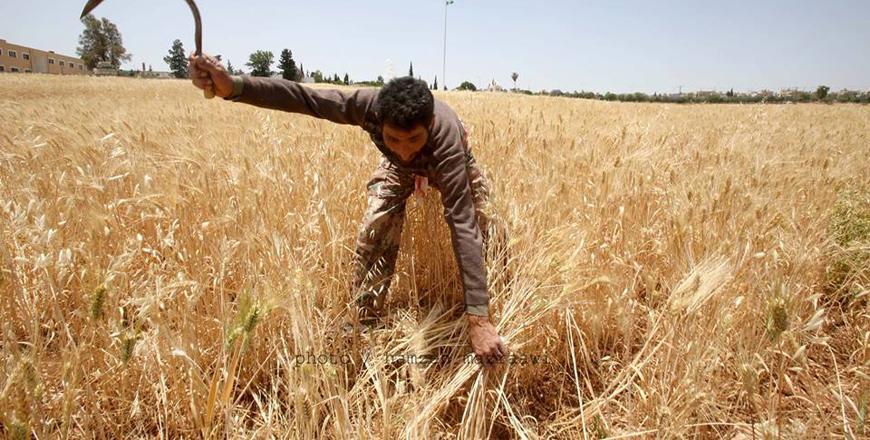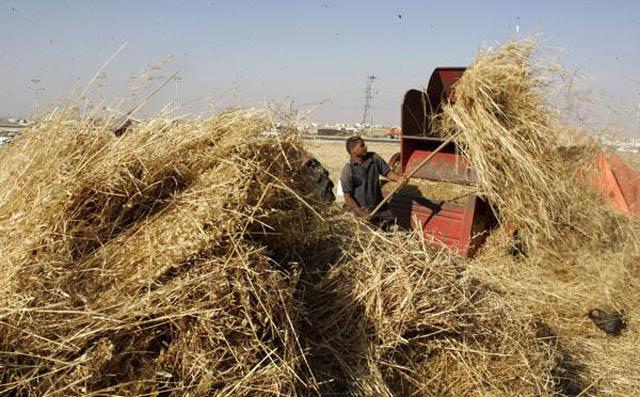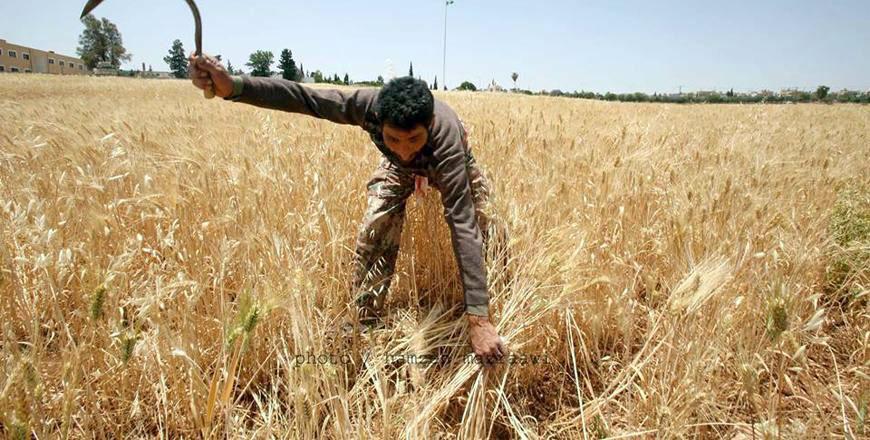You are here
Gov’t buying wheat, barley at preferential prices from local farmers
By Hana Namrouqa - May 27,2015 - Last updated at May 27,2015

Domestic wheat production covers only around 4 per cent of the country's needs (File photo)
AMMAN — The government has started buying wheat and barley from farmers at preferential prices, an Agriculture Ministry official said on Wednesday.
The ministry designated three main centres in the northern, central and southern regions of the Kingdom to receive farmers’ wheat and barley harvests, Agriculture Ministry Spokesperson Nimer Haddadin told The Jordan Times.
“The purchasing of grain from farmers started this week and will last until the end of the harvest season in early August,” Haddadin added.
The centres will receive two kinds of wheat from farmers, one for producing flour and the second, of a higher quality, will be used for producing seeds, he said.
The government will also purchase two types of barley from farmers, one to be used for producing seeds, and the other as fodder for cattle.
“The government will buy the wheat and barley harvest at prices higher than the global rates to encourage farmers to grow grain,” Haddadin noted.
The government will pay JD450 per tonne of wheat and JD370 per tonne of barley for the production of seeds for the next harvest season.
Wheat for producing flour will be purchased for JD370 per tonne, and barley to be used as fodder for JD320, according to Haddadin.
Wheat and barley were cultivated on 872,499 dunums of land for the 2014/2015 agricultural season, according to official figures.
Jordan produced 12,000 tonnes of wheat last year, according to the ministry, which expected production to range between 20,000 and 25,000 tonnes this year due to “excellent rainfall during the wet season”.
Farmers grow wheat across the country, but the grain is mainly cultivated in Irbid and the Houran plains in the north; Madaba and Husban in the central region; and Arrabeh in the southern Governorate of Karak.
Official figures indicate that the country’s wheat imports used to be around 900,000 tonnes annually, but the figure has increased to 1 million tonnes due to population growth in light of the Syrian refugee influx.
The Kingdom, which consumes 80,000 tonnes of wheat per month, imports over 96 per cent of its wheat needs as domestic production covers only around 4 per cent of demand.
Jordan imports its needs of wheat from several countries including Ukraine, Kazakhstan, Russia, Romania and the United States.
Related Articles
AMMAN – The government started this week buying wheat and barley from farmers at preferential prices in favour of producers, an official sai
AMMAN — The government has raised the price at which it will buy wheat and barley from farmers in compensation for a “weak” production seaso
AMMAN — The Ministry of Agriculture on Sunday announced that it had purchased and received 16,468 tonnes of locally produced wheat and 34,81



















